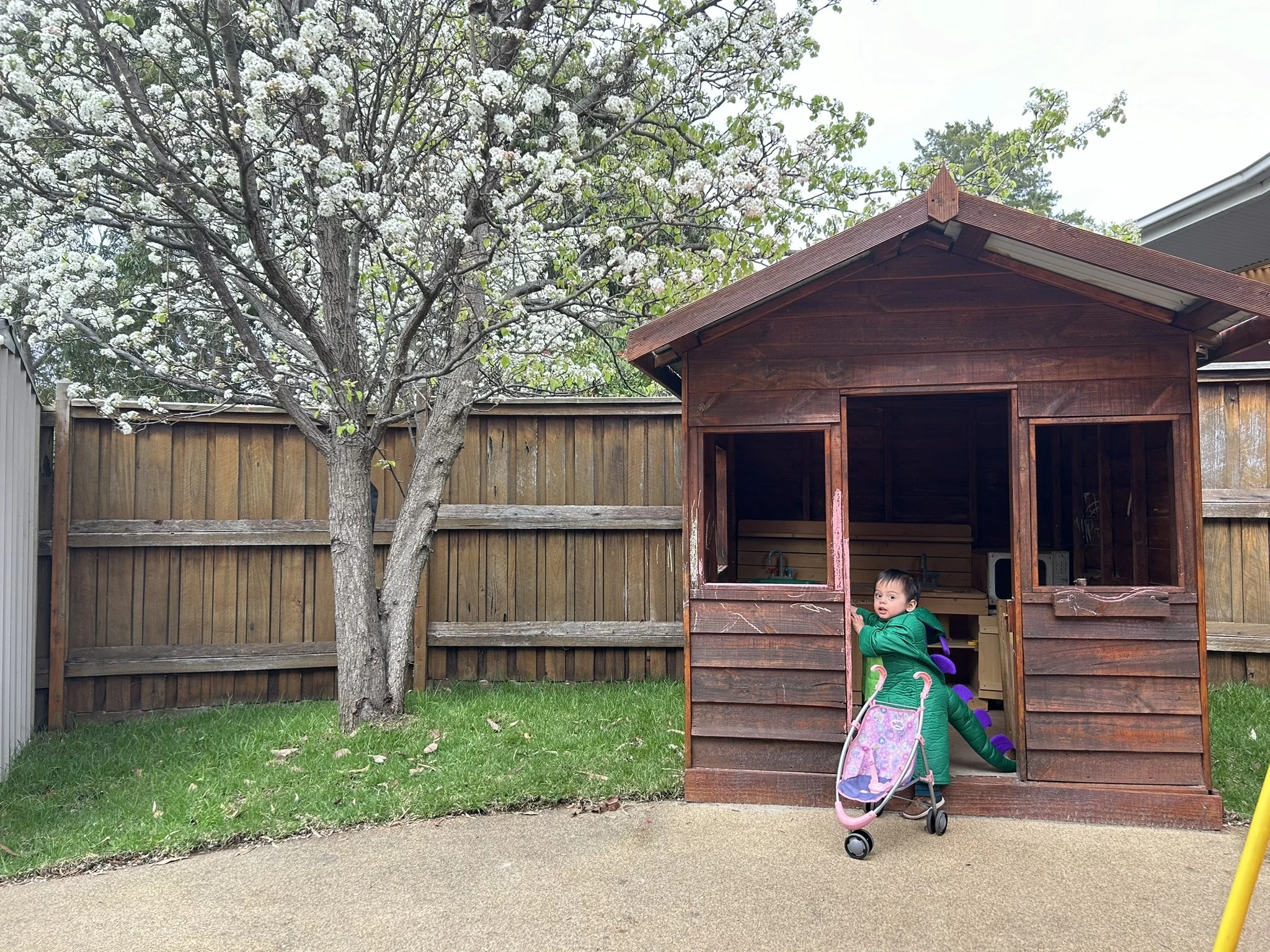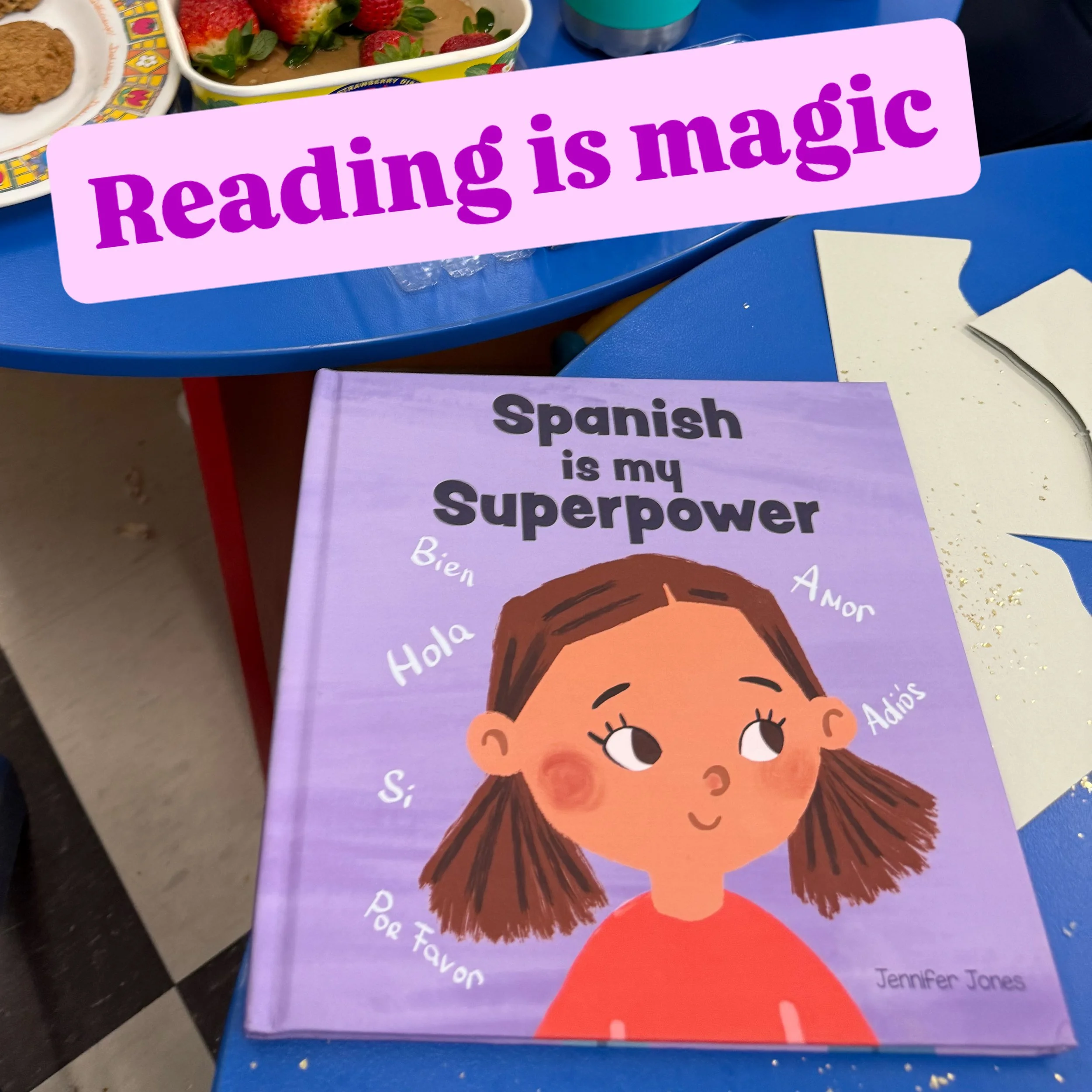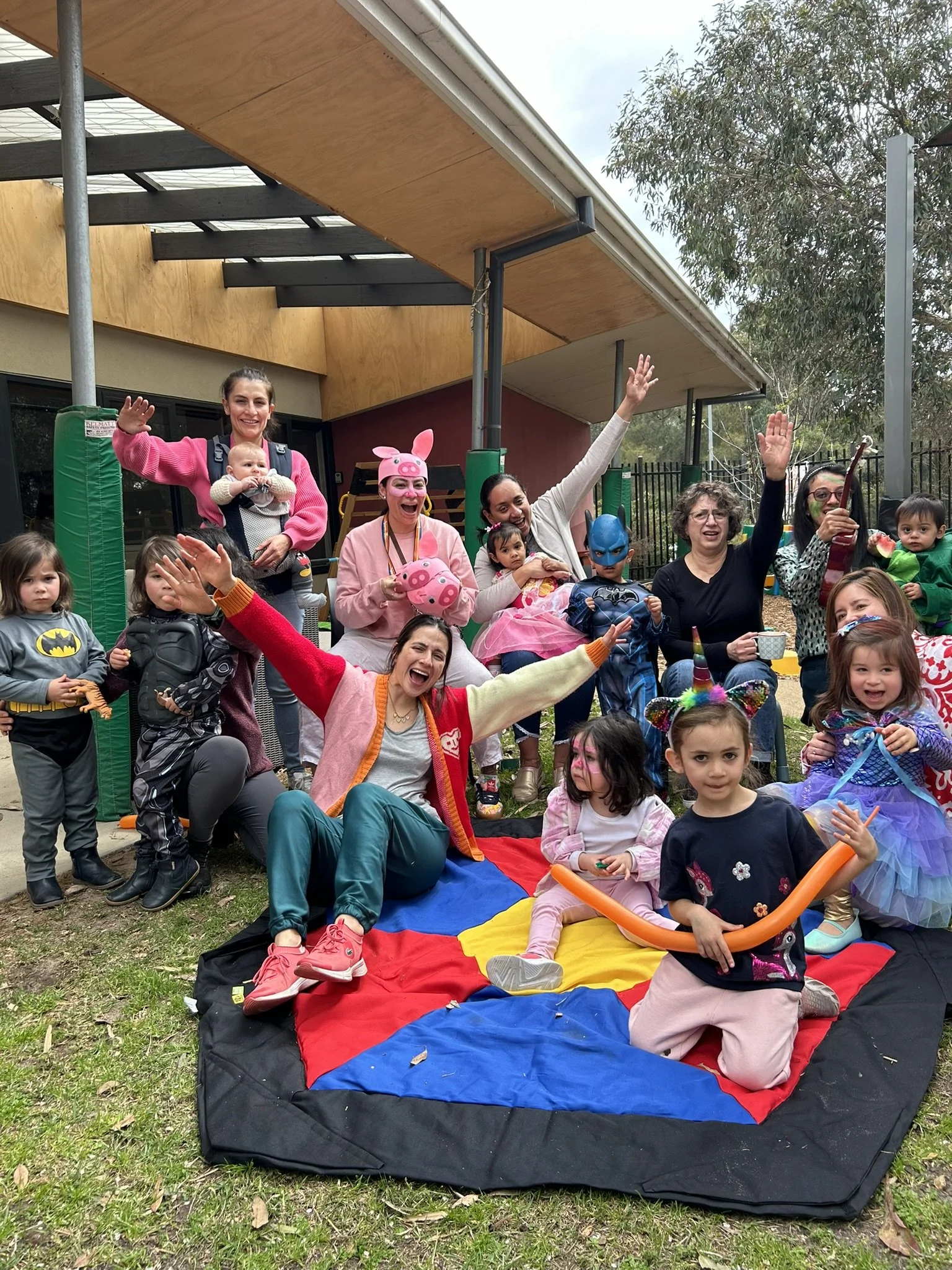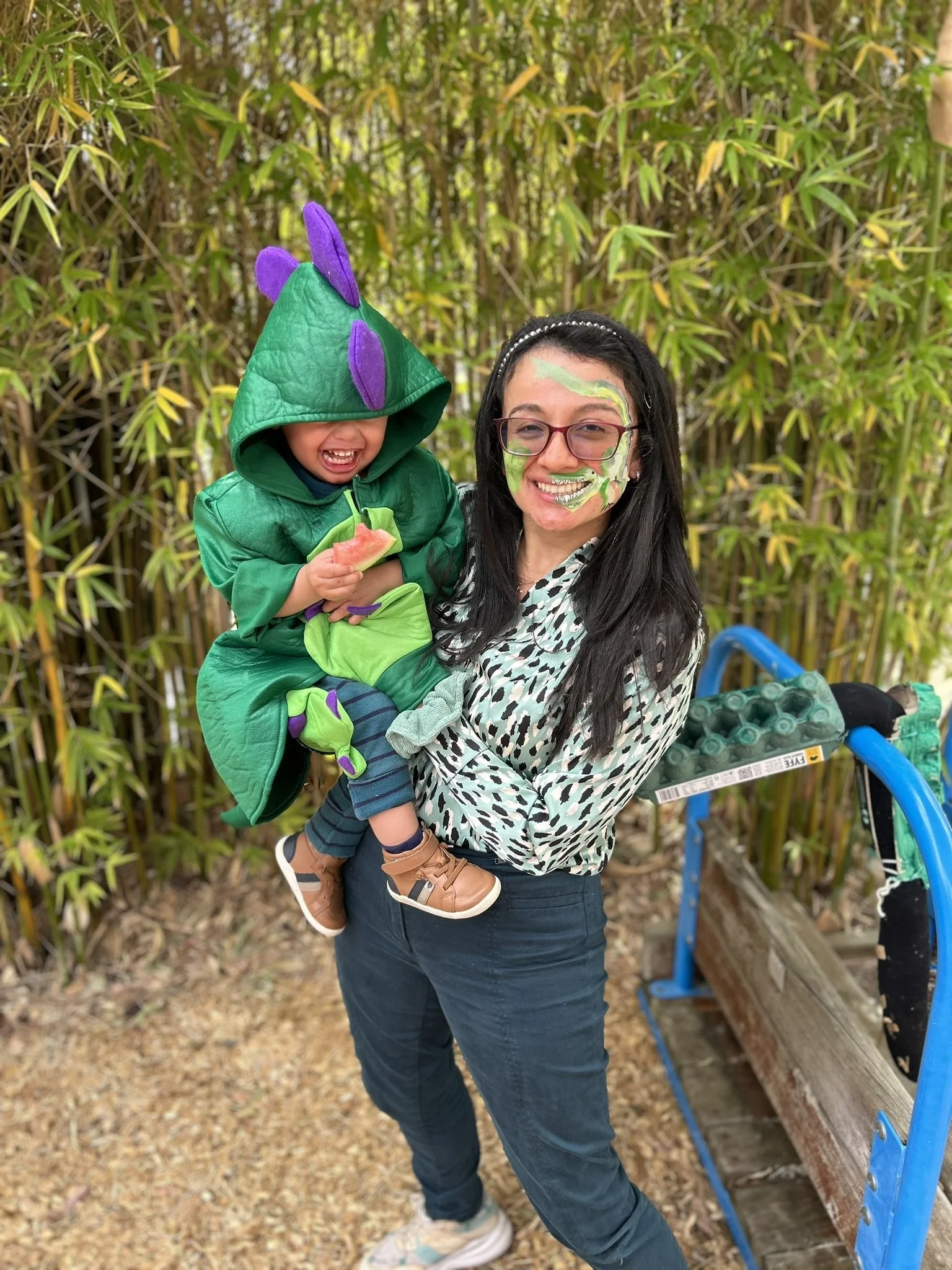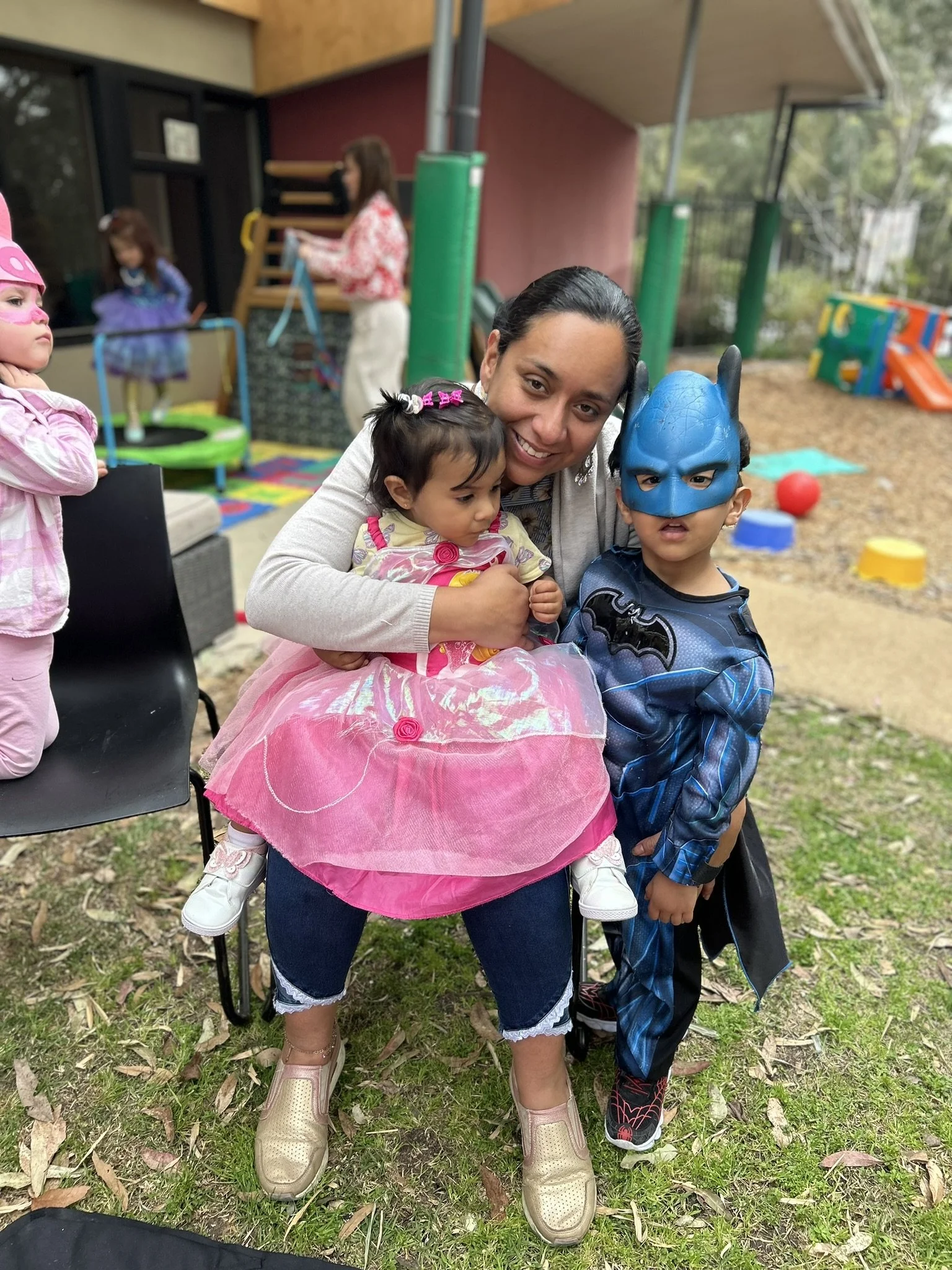Lily Cerôn-Fernandez is already creating strong memories for the young children and babies that encircle her during storytime. All the mums at this playgroup are making these experiences strong. Each week, they speak their mother tongue and the children rejoice at the sound of, “Hola! Cómo estás!”
“It’s deeply fulfilling,” said Lily.
“Sharing my culture and language feels like handing over a gift- one that holds songs, games and sayings passed down through generations. For my own children, it is a way of keeping them connected to their roots. For others, it is an invitation to explore, to discover and to celebrate diversity in a joyful, playful way.”
People travel and relocate for many reasons: better opportunities, safety, work and more often than not, love. Humans are very good at creating a sense of community, wherever they end up, but as many immigrants relay, it is not easy. It requires putting oneself out there, dedication and time.
For Lily and other Spanish families, playgroup has enabled their language to vibrantly sing through the childhoods of upcoming generations. The families here pass on what it means to have links to family, to the stories of one’s family and most crucially, to identity. The children, very early on, understand the sounds, flavours, harmonies and meanings of multiple cultures- and thus, inhabit a bilingual landscape.
As this playgroup demonstrates, the children, parents and grandparents are enriched each week as they connect through the myriad of ways they feel their culture lives on- and is celebrated.
We spoke with Lily, a local Playgroup Champion, about what playgroup means to her and her community.
What have been the most meaningful moments shared at your playgroup?
The most meaningful moments are the ones when a child spontaneously sings a Spanish rhyme we taught, or when a parent shares that their little one used a Spanish word at home. Those seemingly small moments feel like big victories because they show that language is living in their everyday lives- and that connection was sparked in our playgroup. It is incredibly moving to witness children find joy in the rhythm, playfulness and sound of their heritage language.
You have three Spanish playgroup sessions that run a week. What has been the benefit of congregating regularly with other families who speak your native tongue?
Meeting regularly has created more than just a schedule- it has created community. The consistency gives the children a sense of belonging, but it also gives parents and carers a space to share, vent, laugh and connect in a language that feels like home. We are not just exchanging words- we are sharing stories, traditions and cultural identity. That rhythm and regularity help language stick, but more importantly, they help people feel seen.
What benefits have you noticed in your child’s learning and development, growing up in a bilingual household?
Beyond the linguistic skills, I’ve noticed stronger listening, problem-solving, and empathy in my children. Being bilingual teaches them to be more adaptable- to understand that things can have more than one meaning, and that people express themselves differently.
“It opens their world and their hearts at the same time. They become curious learners and culturally aware individuals, even at a young age.”
What have you enjoyed most about being a mum?
The unexpected magic of everyday moments. The cuddles, the messy play, the curiosity. Being a mum has taught me to slow down and see the world through smaller, more wonder-filled eyes. It is a privilege to nurture, guide and learn from these little humans as they grow- and to grow alongside them.
What has surprised you about playgroup culture and Australian culture?
“I’ve been so warmly surprised by how open and welcoming the playgroup culture is in Australia. There is a strong spirit of volunteering, inclusion and community. In many ways, playgroups here become second families- especially for those of us living far from our homelands. I have seen so much kindness exchanged across languages and cultures.”
What do the children love about their playgroup days?
They love the music, movement and messy play! Anything that lets them express themselves freely- dancing to Spanish songs, painting with bold colours, or engaging in pretend play. But most of all, they love being together, forming their first friendships in a space where their language and culture are celebrated.
What have you enjoyed most about being part of your local playgroup community?
What I have enjoyed most is witnessing genuine friendships grow- both among the children and the adults. My daughter and son have formed beautiful bonds with their closest friends and I am grateful to say that I have also found my own circle- supportive, like-minded people who have become my tight-knit tribe. I have loved seeing families open up, exchange recipes, share parenting advice, and laugh together. It is a space that nourishes us all- emotionally, socially, and culturally. Knowing that I have played a part in building something that supports and uplifts families week after week is deeply rewarding.
For those who have never been to a playgroup, why would you encourage them to attend?
“Playgroup is more than just play. It is connection. It is support. It is community. Whether you are a parent, grandparent, carer, or volunteer, you will find something meaningful in being part of a group that shares joys, challenges and growth. It is a lifeline, especially in the early years of parenting and it is a gift for children to learn and belong together.”
How does it feel to know that you have had such a positive impact on so many families who nominated you as a Playgroup Champion?
It is incredibly humbling and heart-warming. I never expected recognition- my focus has always been on creating a loving, fun and culturally rich space for the families. Knowing that others have felt the impact means the world. It makes all the late-night prep, storytelling and singing with little ones so worthwhile.
Connect and Join the Fun at Jack and Jill Spanish Playgroup Here
Article by Sinead Halliday
Photography by Mylie Nauendorf and LilyCerôn-Fernande




